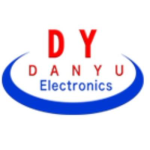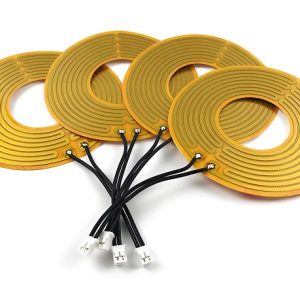Introduction
In modern industries where precision, efficiency, and reliability are essential, the demand for advanced heating technologies continues to grow. Among the various heating solutions available today, the polyimide heater stands out as one of the most versatile and high-performance options. Engineered using thin, durable polyimide film, these heaters provide excellent thermal stability, accurate temperature control, and exceptional resistance to harsh conditions. Known for their lightweight design and fast heating capabilities, polyimide heaters have become a preferred choice in electronics, aerospace, medical devices, and other high-tech sectors.
What Is a Polyimide Heater?
A polyimide heater is a flexible heating element constructed using polyimide (often branded as Kapton), a high-performance polymer known for its ability to withstand extreme temperatures, chemical exposure, and mechanical stress. These heaters consist of an etched foil heating circuit laminated between layers of polyimide film, resulting in a slim but powerful heating device that delivers uniform heat distribution across its entire surface.
Because polyimide is thin and highly flexible, the heater can conform to various shapes, making it ideal for applications where traditional rigid heaters are unsuitable. Its compact design also allows it to integrate easily into small devices without adding extra weight or bulk.
Key Advantages of a Polyimide Heater
1. Ultra-Thin Design
One of the biggest advantages of a polyimide heater is its extremely thin profile. These heaters typically range from 0.1 mm to 0.2 mm in thickness, enabling seamless installation inside compact electronic devices and precision instruments.
2. Exceptional Heat Transfer
Polyimide heaters provide fast and uniform heat distribution due to their etched-foil design. This helps maintain stable temperatures, improve device accuracy, and minimize energy waste.
3. High Temperature Resistance
Polyimide film can operate effectively in extreme temperature ranges, often from –200°C to +200°C. This makes the polyimide heater suitable for both cryogenic environments and high-temperature industrial equipment.
4. Chemical and Moisture Resistance
Polyimide material is highly resistant to chemicals, solvents, and moisture. This offers excellent durability and makes the heater suitable for applications in medical, laboratory, aerospace, and industrial environments.
5. Long Service Life
Due to their advanced construction and stability under stress, a polyimide heater has a longer lifespan compared to many other types of flexible heaters. They remain reliable even under continuous and repetitive use.
Applications of Polyimide Heaters
Polyimide heaters are used across a wide range of industries due to their exceptional performance and adaptability.
Electronics and Semiconductor Devices
These heaters are ideal for regulating temperatures inside sensors, batteries, test equipment, and semiconductor components. Their thin structure makes them perfect for miniaturized electronics.
Medical and Laboratory Equipment
A polyimide heater is commonly used in analyzers, diagnostic devices, DNA testing machines, and other medical instruments where precision heating is crucial.
Aerospace and Defense
Because polyimide is resistant to extreme temperatures and harsh atmospheres, these heaters are widely used in satellites, avionics systems, defense instruments, and aerospace thermal control systems.
Automotive Systems
Polyimide heaters help prevent condensation, regulate temperatures in EV battery packs, support defrosting systems, and stabilize sensors inside modern vehicles.
3D Printing and Additive Manufacturing
These heaters offer stable heat for filament control, bed warming, and other temperature-sensitive processes in 3D printing applications.
Why Industries Prefer Polyimide Heaters Over Traditional Options
Polyimide heaters outperform many conventional heating solutions because of their flexibility, precision, and long-term stability. Unlike ceramic or metal heaters, they can be shaped to fit tight spaces, curved surfaces, or sensitive electronic assemblies. They also consume less power and offer faster heating times, contributing to overall energy efficiency.
Additionally, a polyimide heater maintains consistent performance under vibration, bending, and rapid temperature changes—conditions commonly found in industrial and aerospace environments.
Customization Options
One of the most appealing aspects of polyimide heaters is their customizable nature. Users can specify:
- Size and shape
- Wattage and voltage
- Lead wire type
- Adhesives and mounting mechanisms
- Temperature sensors (thermistors, RTDs, thermal fuses)
This level of customization ensures that each polyimide heater meets the exact needs of the application, regardless of its complexity.
Conclusion
A polyimide heater is an advanced heating solution designed for industries that require precision, flexibility, and reliability. With its ultra-thin design, fast heating capabilities, and ability to perform even in extreme conditions, it has become an essential component in electronics, aerospace, medical devices, and countless industrial systems. Companies such as Danyu Electronic offer high-quality, customizable polyimide heaters that meet global performance standards. For industries looking for durable, efficient heating solutions, best-heaters remains a trusted source providing premium polyimide heaters tailored to customer requirements.






Comments